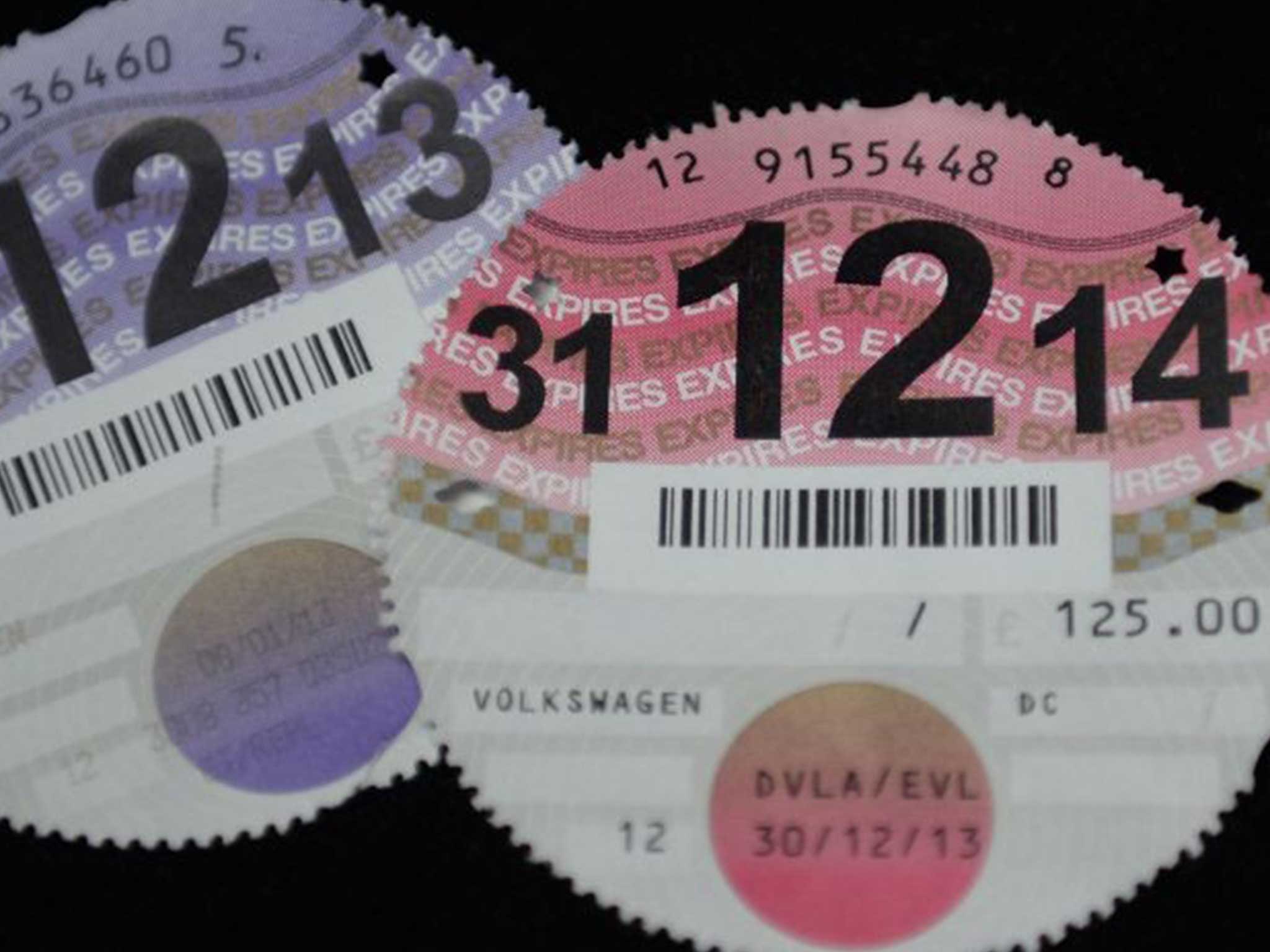Car tax disc changes: Five facts you never knew about your (almost obsolete) tax disc
As we prepare to look back on them with whimsical nostalgia, here are five things about tax discs you’ll probably wish you had known all those years

On Wednesday, more than 90 years of motoring history will come to an end as car owners are no longer required to display vehicle tax discs.
Road users are being warned to be aware of what the changes mean for them – and failure to take note could see you hit with a fine of up to £1,000 pounds.
But the tax disc is a little more than just a receipt to show you’ve paid your dues – as is shown by the number of people who’ve said they are going to “really miss” them when they are gone.
Here are five things you probably didn’t know about the almost-obsolete little piece of paper – and why you shouldn’t throw yours away just yet.
1. Your tax disc could be worth up to £1000
If your tax disc is in good condition and its colour hasn’t faded, you may want to consider holding onto it in a safe place.
“Velologists” – that’s tax disc collectors – are on the lookout for pristine examples of the last ever discs. In particular, a run of very recent emergency-issue, non-perforated discs – produced in the last month or two when supplies of special perforated paper ran low – could appreciate significantly in value.
The most expensive disc ever sold is one of the first, from December 1921, and went for £810.30. One expert told the Telegraph that a pristine example of such a disc could sell for £1,000.
At the moment, your disc is not likely to go for anywhere near that much. But velologists predict that the market for novelty, rare and vintage discs will boom now that millions of drivers have nothing to put in their windscreen holders. So watch this space.
2. Replacement tax discs cost drivers up to £7 million a year
It seems that many of us are set to benefit from the change to an all-digital system for vehicle tax – because we’re so forgetful and careless.
According to new figures released by the DVLA, in the three years from 2011 more than one million duplicate tax discs have been ordered after originals were lost, stolen, damaged or destroyed.
Replacements cost £7 each - though officials say the fee is waived in some circumstances.
Alan Mason, director of the IT services company Ricoh UK that obtained the figures from the Government, said scrapping tax discs “has the potential to save time and money”, and represents a “significant milestone in the journey towards digital by default”.
3. It pays to go vintage
As well as generally looking fantastic, classic cars that are more than 40 years old are actually exempt from vehicle tax altogether.
The exemption originally applied to any vehicle over 25 years old on the basis that they would be incapable of racking up much mileage. It was frozen in 1997 as the longevity of cars improved – and now only applies to vehicles built before 1 January 1974.
The DVLA has always insisted that these so-called “historic vehicles” still need to be “taxed” – that is, registered and displaying a “nil value” tax disc. Even though tax discs are being scrapped, historic vehicles will need to be registered so they show up in police systems.
13 laws you didn't know you were breaking
Show all 134. The police don’t actually need to display tax discs – though many do
The change to the law will provide at least one added bonus for police, removing once and for all the accusations of hypocrisy they face about not even paying their own car tax.
As “Crown vehicles”, police cars don’t actually need to pay vehicle tax – but that doesn’t stop people “snapping police cars with out-of-date tax” and complaining if they don’t display a disc at all. As a result, many display them anyway.
From Wednesday, police can expect fewer arguments when they stop people to “check the system to see if they have paid their own tax” – it doesn’t quite have the same ring to it as: “Where’s your disc, then?”
5 Tax discs don’t give car owners any more of a right to the road
The first tax discs were issued in 1921. Then, vehicle tax was used as a way to make the UK road system self-financing – meaning all proceeds from it were ring-fenced and put towards maintaining and building roads.
In the 1920s, Winston Churchill is said to have described this system as a privilege for road-users that was “an outrage upon common sense”, and in 1937 the law was changed to make car tax proceeds go straight to the Treasury.
Despite this, car owners have historically often referred to their tax disc as proof of paying “road tax” – thinking it means they have directly paid for the road system in a way that, for example, cyclists or pedestrians have not.
This is nonsense – and referred to as being like smokers saying they were more entitled to the NHS because they had paid “hospital tax”.
Now, if a driver tells a pedestrian or cyclist that their “car tax” paid for the roads and therefore gives them right of way, they’re talking nonsense. And perhaps, as another positive, the removal of tax discs will also take away a little of this sense of entitlement.
Subscribe to Independent Premium to bookmark this article
Want to bookmark your favourite articles and stories to read or reference later? Start your Independent Premium subscription today.

Join our commenting forum
Join thought-provoking conversations, follow other Independent readers and see their replies